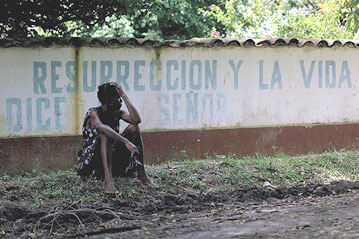By Sovereign Hager
Impunity Watch Reporter, South America

BOGOTA, Colombia-A U.N. independent expert on minority issues has urged the Colombian government to address the displacement, dispossession, poverty, and violence against Afro-Colombian, Black, Raizal, and Palenquero individuals and communities. The expert cited “woefully inadequate” implementation of equal rights legislation.
Collective titles were granted to almost ninety percent of Afro-Colombian ancestral lands, yet many communities are “displaced, dispossessed and unable to live on or work their lands . . . the laws say all the things but still, nothing has happened.”
Investigations by the U.N. Human Rights Council revealed that many Afro-Colombians are displaced by “mega projects,” or large-scale multinational business developments with government promotion. The communities are converned about the encroachment on their lands and environmental degradation. The U.N. expert called these rights “inconvenient rights.”
Other important issues discussed by the U.N. expert include, discrimination against Afro-Colombians, women, the displaced, and the poor leading to “extreme vulnerability.”
The Colombian government has a joint plan with the UNHCR and local aid groups to aid internally displaced people. Afro-Colombians living on the border with Ecuador and in coastal settlements are continuously being displaced. The department of Narino has the highest level of displacement, as indigenous people have been forced out at a higher rate than the Afro-Colombians.
Government estimates indicate that there are more than 140,000 internally displaced people in Narino, with 7,500 forced out last year. Over two hundred people per month register at camps for displaced individuals.
For more information, please see:
Reuters-UNHCR Helps Ease Life for Displaced Colombians in Swampy Shanty Settlement-8 March 2010
Mynews-U.N. Human Rights Expert Soptlights Enduring Plight of Afro-Colombians-16 February 2010
United Nations Human Rights Council-U.N. Expert Calls on Colombian Authorities to Focus on Afro-Colombian’s Plight-15 February 2010